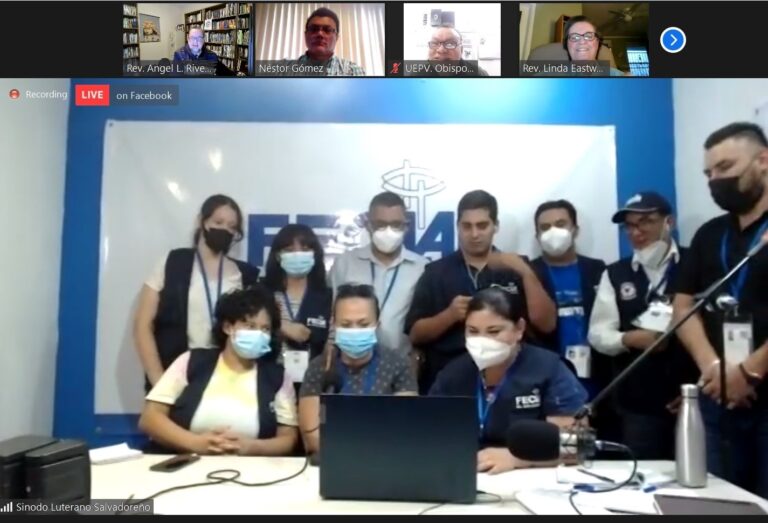Hope Always has the Look of the Young

I could not move from my astonishment at the testimony of two young people, as allowed by the virtual broadcast of the electoral processes in El Salvador, sponsored by the Global Ministries Latin America and Caribbean Office and the People-to-People Pilgrimage Program. Invited by the churches in El Salvador, leaders from churches in the United States, Canada, Venezuela, Cuba, and Uruguay participated virtually, observing the electoral process there and accompany our brothers and sisters in solidarity and Christian love. The elections for the Legislative Branch of Government in El Salvador took place on Sunday, February 28, 2020. During the virtual observation, we witnessed how young people, who are not yet thirty years old, embraced the hope of being part of the change in their native El Salvador. These two young people were active in various parties. Still, they held the same hope of defending the postulates of faith and justice, as they had learned as laypeople of the Salvadoran Lutheran Synod. They were very vocal in their concerns about young people’s opportunities, ecological awareness, garbage disposal, protection of water resources, global warming, and sustainable development, among other things. As they ran for seats in municipal legislatures, most of their visions came out of their direct contact with people.
We also witnessed the dedication and sense of duty of dozens of young people from the churches affiliated to the Ecumenical Forum of the Latin American Council of Churches, who trained for weeks to observe and report the right to vote of Salvadorans in these past elections. Transmitting to us through their cellphones, they documented how polls were not ready at the beginning of the day, how people waited for hours before they could cast their votes and the sense of citizens’ participation in this electoral process. They also observed the lack of physical distancing among voters while waiting in long lines to exercise their right to vote. They filled logs, analyzed statistics, and provided information to both the Salvadoran church leadership and the international ones, connected by virtual means. Their interviews with officials of the Supreme Electoral Tribunal, politicians, and church leaders revealed that they were well informed of the country’s political, social, and democratic reality.

There is no doubt that there are fears about the results of these elections in the country. The current President, Nayib Bukele, will dominate the country’s National Assembly with an overwhelming majority. This victory has been interpreted as an expression of protest and weariness against traditional parties for 30 years. On the other hand, there is fear Bukele and his party could govern the country in an authoritarian way. For civil and non-governmental organizations, checks and balances are always necessary for a country very much divided and still suffering from the aftermath of civil war. However, the prophetic voice of Bishop Medardo Gómez brought the discussion into a deep understanding of the meaning of the actual social process in El Salvador:
“We need to keep telling the story to our young people because they will be responsible for the actions of the present and the future. Most of them did not witness and suffer through the war as my generation did. We have the Subversive Cross that printed the root causes of injustice and lack of peace in our country. They will write their own reasons into the Cross. But I have faith they will relieve us of the Cross’s burden until we can witness the Resurrection of the Salvadoran people.” Before the end of the transmission, I expressed my gratitude to the excellent team of young people and their leader, the Reverend Rafael Menjívar, on behalf of the International Delegation. They ended the transmission by taking photos of themselves, smiling, and embracing each other. From this side of the computer screen, I could not avoid telling myself that hope always has the look of the young.

